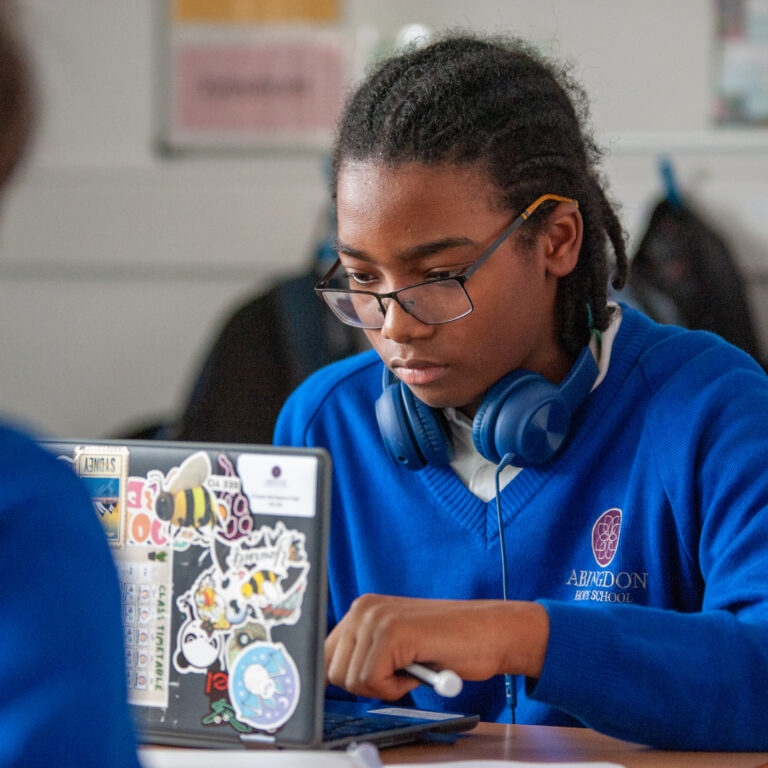Accessibility is built into everything we do at AHS, and technology plays a crucial role in tailoring our teaching to the unique learning profiles of our students.
We are the only SEN school in the UK to be accredited as a Google Reference School, and our approach has been recognised with a number of accolades. This year, we’ve received the award for Best Personalised Learning at the National Google Reference School Awards, and our Head of Digital Education Training, Mr Peter Reeves, has been recognised as a Google for Education Certified Innovator.
This recognition reflects the world-leading work Abingdon House School has been doing to remove barriers to learning for our students.
School-wide accessibility
Training for staff, parents, and students ensures a high level of fluency in accessibility tools and approaches for all, not only a select few. Some of the key initiatives and policies we have throughout the school include:
- Universal designs: The use of pre-designed templates for all learning materials and presentations, with pastel backgrounds, left-justified text, and large, sans-serif fonts throughout.
- Visual supports: The use of visual timetables and social stories to help students understand and anticipate daily routines.
- Laptops for all: The provision of individual Chromebooks for all students and staff, with all learning materials housed in Google Classroom.
- Assistive technology: Universal access to voice typing and screen-reader technology.
- Multimodal feedback: The ability to access feedback on schoolwork through a variety of methods, such as written comments or verbal recordings.
Personalised learning
In addition to these school-wide features and templates, we tailor our approach to individual student needs through personalised “technology diets.” For this, we conduct a holistic evaluation of each student’s handwriting, typing, and voice typing skills. We use this information to create personalised recommendations about each student’s preferred methods for accessing their learning, whether voice typing, typing, or handwriting, and include any other features they require. Students have a say in their own technology diets, giving them ownership over their learning and classroom experience.
By removing barriers to learning and fostering student agency, technology-driven personalised learning has had a really positive impact on students’ wellbeing and academic success.
Mason, a Senior School student, describes how with the use of accessibility features, “I am able to write everything I want in my head. Without the tools, I could have a plan for a paragraph and would only get one or two sentences down in a lesson – now I can actually get the whole paragraph down in a minute or less.” Mason has thrived with the support of a personalised learning approach, sitting and passing his GCSE maths exams a year earlier than expected.
“Accessibility features have allowed me to access work more easily. I have been able to have a better work rate, and these tools have allowed me to achieve things that I never thought were possible.”


